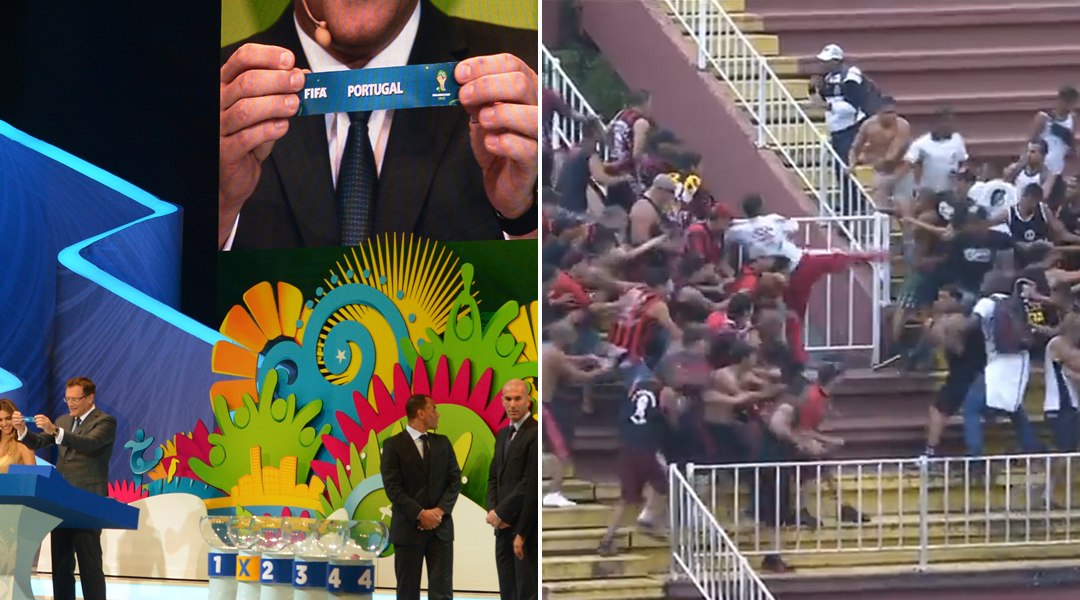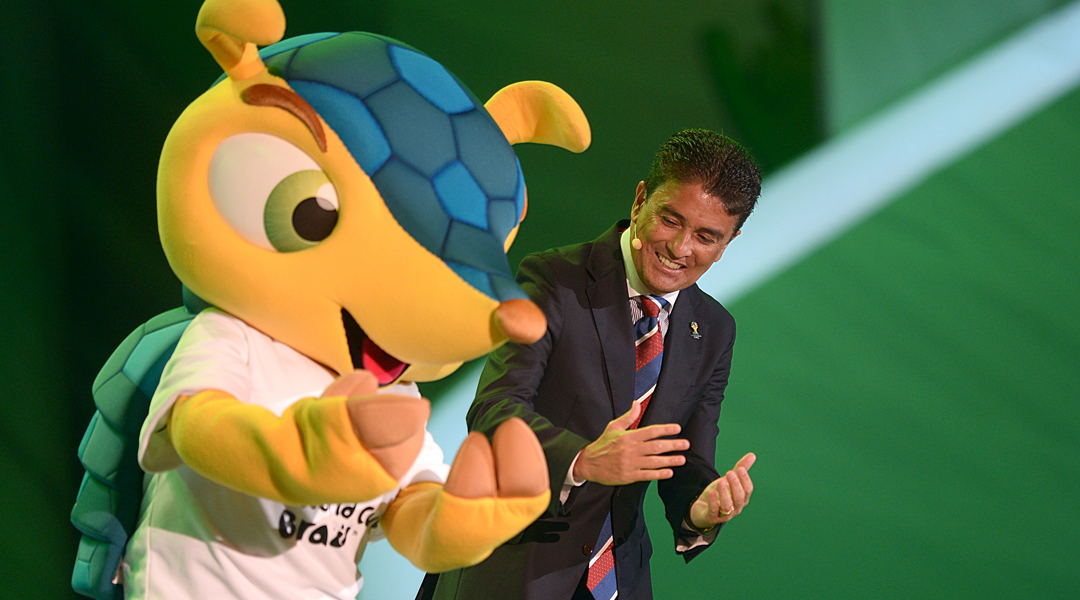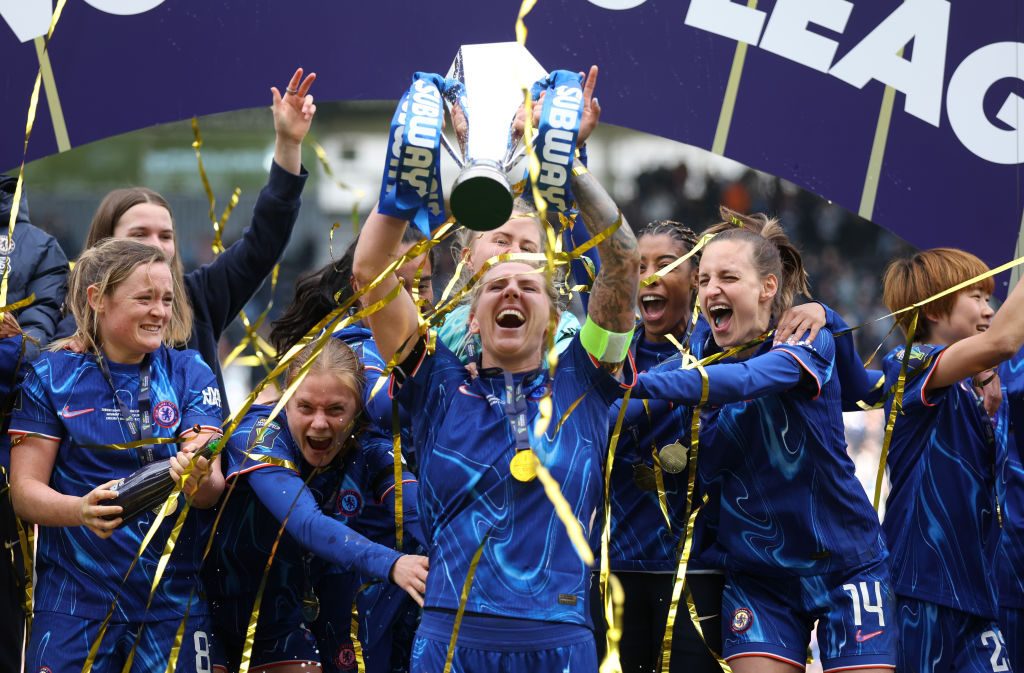Brazil's football violence won't stop the World Cup, the World Cup won't stop the violence
Mauricio Savarese on disturbing violence in Brazil.

The venue for Friday’s draw for the 2014 FIFA World Cup finals was so distant from reality that most restaurants in the Costa do Sauipe resort served only international food and had English speakers left, right and centre. It almost wasn't Brazil at all.
In that bubble of security, everything went smoothly, much like in South Africa in 2010. But how can fans travelling to Brazil next summer feel safe after watching the images of the horrific brawl during the clash between Atletico Paranaense and Vasco da Gama in Joinville? That is a question the Brazilian authorities need to answer. And quickly.
To protect the 5,000 guests and journalists who descended on Sauipe towards the end of last week, there were around 3,000 security officers. The venue was already difficult to reach: almost 80 km away from the nearest big city, Salvador.
Every detail of the event was carefully planned to avoid any bad press for Brazil or the tournament after an accident at the Sao Paulo arena left two builders dead, and bad planning put two other World Cup stadia at risk of missing FIFA’s December 31 completion deadline. Fortunately, there were no issues during the draw – bar one or two murmurs from England that France should have been in Pot 2 and subsequently a tougher group.
On Sunday, a different Brazil was visible – the one outside the bubble.
WARNING: The below video contains scenes of violence some may find distressing.
As the balls were being plucked in Sauipe, Paranaense and Vasco ultras were preparing for violence in tiny Joinville, in the deep south. Hooligans were so sure there would be trouble in the last round of the Brazilian championship that one of their groups went online to tell women and children not to attend. They were so eager to face off that the first brawls started outside on the nearby streets long before the game began.
Get FourFourTwo Newsletter
The best features, fun and footballing quizzes, straight to your inbox every week.
Security in Joinville was an issue from the start: just 90 men were tasked with taking care of the 8,000-strong crowd - and these weren’t even police officers, but employees of a private security firm. This was because Santa Catarina state law demands clubs pay for police to be in attendance, something Paranaense chose not to do. The result was a massive confrontation, four hooligans in hospital in serious condition and six arrested.
The difference between what you will have seen in Sauipe on Friday and Brazilian club football is that the latter is much more important to the vast majority of Brazilians.
The World Cup bubble may well do a good job of looking after those visiting Brazil for the tournament, but it will bring no legacy to Joinville, no local version of the Taylor report, or any kind of clampdown on violence at matches.
Ultras are too entrenched in Brazilian clubs. They vote, they are sponsored to travel and support their team in away matches, they have the power of destabilising players and coaches from the stands and much more.
Ultras have no relationship with the Brazilian FA, which is more interested in state federations and, in a lesser extent, in clubs. That is also why Brazilian fans weren’t particularly loud in previous World Cups - it is mostly a crowd of wealthy families that can afford the higher ticket prices. Wealthy families also made up a large percentage of the Brazilian crowds during the Confederations Cup, and it is likely to be the same story again next summer.

The vast majority of Brazilian ultras care very little about the World Cup - their identity is linked to the clubs. Since Brazil will play at home, it wouldn’t be a surprise to see them around. But their beef is not with foreigners, it is with local rival supporters.
That probably played a role in the rumble in Joinville. Paranaense and Vasco don’t have much history as being big rivals, but the former needed to win to qualify for next season’s Copa Libertadores, while the latter needed the points to avoid relegation. Paranaense won 5-1.
So far, the most interesting initiative brought in to do away with violence at matches has come in Rio de Janeiro, where special courts have been set up at the venues to hear cases minutes after they take place.
That seems a fairly big step, but perhaps a necessary one. Most violence goes unpunished by the police and 2013 was actually one of the first years in which sporting sanctions were made – and there will surely be big ones after Sunday’s incident.
The World Cup bubble could work well for visitors, but so far it has made no changes for Brazilians who go to the stadia to watch local football every weekend.
The violence in Joinville shows that even if things look good from the plush surroundings of posh resorts, Brazilian football still has enough problems to put people off attending the game’s main event. No one can live in a bubble of denial forever.
